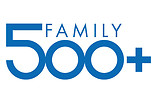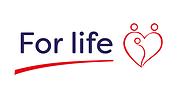Go to main menu | Go to submenu | Skip to content
Brief information on polish requirements – intercountry adoptions
According to Polish law the aim of adoption is to create a substitute family environment for children deprived of their own families. There is no separate law system regulating domestic and intercountry adoption but there are few different acts and regulations of relevant minister, such as the Minister of Labour and Social Policy (MoLSP) and the Minister of Justice (MoJ). A domestic adoption is of the competence of the MoJ. An inter-country adoption is of the competence of MoLSP acting as the Central Authority designated in accordance with article 6 of the Hague Convention.
The legal basic principles of adoption are the same for both of the Ministers:
- only a minor person can be adopted (under 18);
- adoption must be in the best interest of a child;
- child adopted acquires the status of a child of the adopter;
- adoption is an irreversible inclusion of a child into a family;
- adoption is kept secret from other persons, i.e. in documents adopted child uses name of the persons who adopted him/her and who are mentioned as his/her parents;
- when child is 13 years old, his/her consent to adoption is required;
- adoption which will bring about a change of residence of the adopted child from Poland to another country can take place only when it is the only way to ensure the proper substitute family environment for the child.
Adoption is a decree of a court. Family courts are competent to decree adoption and also certify that the child has been adopted in accordance with the Hague Convention, as far as it concerns an intercountry adoption (article 23 of The Hague Convention – competent authority).
Intercountry adoption mediation is handled by three adoption centres (article 13 – accredited bodies):
1. Public Adoption and Custody Centre;
2. National Adoption and Custody Centre;
3. Catholic Adoption and Custody Centre.
Only one institution of those three is authorised by Central Authority to conduct the Central Data Bank on children qualified for an intercountry adoption. It is Public Care and Custody Centre. Adoption centres guarantee that the correct procedure is followed.
A Qualification Board, to which prospective adoption parents’ documents are submitted, makes the qualification of these parents and matches a child from among the children qualified for an intercountry adoption.
Foreign residents which would like to adopt Polish children should turn to Central Authority or an accredited adoption organisation (an accredited body) in their country. When complete documentation concerning the candidates for adoptive parents is prepared – it should be translated into Polish by a sworn translator and each page should contain a stamp.
The following are required:
1. application for child/children adoption (there is no official blank);
2. birth certificates of prospective parents;
3. entry to marriage certificate;
4. criminal records clearance check;
5. confirmation of financial status;
6. proof of citizenship;
7. medical records;
8. authorised Home Study;
9. recommendation of an accredited adoption agency in the country of the applying couple;
10. agreement of the Central Authority of the receiving country stating that the applying couple is eligible and suited to adoption.
Also, the documents should be verified by the Central Authority of receiving country. If one chooses a central authority for mediation in the procedure, then documents should be sent to Polish Central Authority (Department of Family Benefits in Polish Ministry of Labour and Social Policy) and then it passes the documents on to Public Care and Custody Centre or directly to Public Care and Custody Centre. If one chooses for mediation an adoption agency (an accredited body), then it should turn to National Care and Custody Centre or Catholic Care and Custody Centre. These centres require to sign an agreement on co-operation with accredited foreign adoption agency. It is up to you which one to choose. Then the documentation should be passed on to the chosen centre.
The centre identifies a family for a child, as the centres are responsible for carrying out the procedure, and after one year the adoption is done the post-placement report should be sent to that particular centre.
The main source of Polish law referring to adoption is:
- The Family and Guardianship Code, of February 25th, 1964;
- The Family support and foster care system Act,2011;
- The Hague Convention on Protection of Children and Co-operation in Respect of Intercountry Adoption from 1993, binding in Poland as of October 1st, 1995.
The interest of childless Polish married couples in a possible adoption is high, therefore the waiting period for a possibility to adopt small children (under 7) by foreign couples is rather long (one year or even more).
Recently in Poland more and more young children are adopted by Polish couples and the number of children qualified to an intercountry adoption is decreasing. Very often, qualified children are older than 7 years, their health is not in good condition (disabilities) or there are siblings of more than 2 children.
Nevertheless, there are also healthy small children (under 7) or if they are ill – the illness is curable.
Polish law:
- Polski Kodeks Rodzinny i Opiekuńczy (Dz.U. z 1964 r., Nr 9, poz. 59, z późn. zm.);
- Ustawa z dnia 9 czerwca 2011 roku o wspieraniu rodziny i systemie pieczy zastępczej (Dz.U. Nr 149 poz.887, z późn. zm.);
- Obwieszczenie Ministra Pracy i Polityki Społecznej z dnia 30 stycznia 2012 r. w sprawie listy ośrodków adopcyjnych upoważnionych do współpracy z organami centralnymi innych państw lub z licencjonowanymi przez rządy innych państw organizacjami lub ośrodkami adopcyjnymi (M.P. z dnia 9 lutego 2012 roku, poz. 44).





